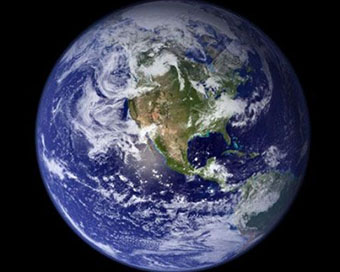Gallery
 PM Modi visit USA
PM Modi visit USA Only the mirror in my washroom and phone gallery see the crazy me : Sara Khan
Only the mirror in my washroom and phone gallery see the crazy me : Sara Khan Karnataka rain fury: Photos of flooded streets, uprooted trees
Karnataka rain fury: Photos of flooded streets, uprooted trees Cannes 2022: Deepika Padukone stuns at the French Riviera in Sabyasachi outfit
Cannes 2022: Deepika Padukone stuns at the French Riviera in Sabyasachi outfit Ranbir Kapoor And Alia Bhatt's Wedding Pics - Sealed With A Kiss
Ranbir Kapoor And Alia Bhatt's Wedding Pics - Sealed With A Kiss Oscars 2022: Every Academy Award Winner
Oscars 2022: Every Academy Award Winner Shane Warne (1969-2022): Australian cricket legend's life in pictures
Shane Warne (1969-2022): Australian cricket legend's life in pictures Photos: What Russia's invasion of Ukraine looks like on the ground
Photos: What Russia's invasion of Ukraine looks like on the ground Lata Mangeshkar (1929-2022): A pictorial tribute to the 'Nightingale of India'
Lata Mangeshkar (1929-2022): A pictorial tribute to the 'Nightingale of India' PM Modi unveils 216-feet tall Statue of Equality in Hyderabad (PHOTOS)
PM Modi unveils 216-feet tall Statue of Equality in Hyderabad (PHOTOS)The Badminton Association of India (BAI) has announced a 14-member-strong India squad for
- Men’s Sr Hockey Nationals to be played in division-based format from April 4
- Mensik denies Djokovic 100th title in Miami final
- KIPG: Son of a vegetable vendor, Bihar’s Jhandu Kumar eyes Worlds, 2028 Paralympics
- Hardik Singh credits hard work and team unity for receiving HI Midfielder of the Year award
- Djokovic, Alcaraz land in same half of Miami draw
Earth has life span of nearly 1bn years more: Study Last Updated : 04 Mar 2021 12:30:48 AM IST 
Planet Earth The future life span of Earth's oxygen-rich atmosphere is approximately one billion years, a new study reveals.
According to the study, published in the journal Nature Geoscience, Earth's surface environment is highly oxygenated -- from the atmosphere to the deepest reaches of the oceans, representing a hallmark of active photosynthetic biosphere.However, the fundamental timescale of the oxygen-rich atmosphere on Earth remains uncertain, particularly for the distant future."For many years, the lifespan of Earth's biosphere has been discussed based on scientific knowledge about the steadily brightening of the sun and global carbonate-silicate geochemical cycle," said researcher Kazumi Ozaki, Assistant Professor at Toho University.To examine how Earth's atmosphere will evolve in the future, the team constructed an Earth system model which simulates climate and biogeochemical processes.Because modelling future Earth evolution intrinsically has uncertainties in geological and biological evolutions, a stochastic approach was adopted, enabling the researchers to obtain a probabilistic assessment of the lifespan of an oxygenated atmosphere.The team ran the model more than 400,000 times, varying model parameter, and found that Earth's oxygen-rich atmosphere will probably persist for another one billion years before rapid deoxygenation renders the atmosphere reminiscent of early Earth before the Great Oxidation Event around 2.5 billion years ago."The atmosphere after the great deoxygenation is characterized by an elevated methane, low-levels of CO2 and no ozone layer. The Earth system will probably be a world of anaerobic life forms," said Ozaki.Earth's oxygen-rich atmosphere represents an important sign of life that can be remotely detectable. However, this study suggests that Earth's oxygenated atmosphere would not be a permanent feature, and that the oxygen-rich atmosphere might only be possible for 20-30 per cent of the Earth's entire history as an inhabited planet, the researchers said.Oxygen (and photochemical byproduct, ozone) is the most accepted biosignature for the search for life on the exoplanets, but if we can generalize this insight to Earth-like planets, then scientists need to consider additional biosignatures applicable to weakly-oxygenated and anoxic worlds in the search for life beyond our solar system, the team added.IANS Tokyo For Latest Updates Please-
Join us on
Follow us on








172.31.16.186







